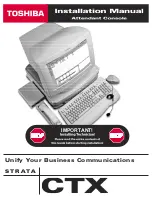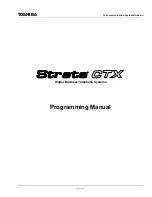
the tone control is turned clockwise, the low frequency
content begins to decrease, whilst the high frequency
content begins to increase. With the tone control turned fully
clockwise, the high frequency components dominate.
This design provides the effective flexibility of a multi-band
EQ in a single control. It will by no means replace the EQ on
your amp, but it will certainly help you get quite close to the
tone you’re after, which you can then tweak with your amp’s
tone control. The range of the tone control has been carefully
tuned to be useable over the whole range of settings. This
flexibility, coupled with the extra range of tones available
from the
mid control
gives the Tube Zone the ability to
cover almost all styles of music.
Mid Control
The first two generations of Tube Zone pedals featured a mid
‘mode’ switch, which gave you access to 2 or 3 mid levels.
The more I thought about things, the more I realised that the
mids, which are the most important group of frequencies for
guitar, really required a dedicated and continuous control. So
for the 3rd generation of Tube Zones, I converted the mode
switch into a mid control. This is a powerful and unique
control, which is highly interactive with the tone control, and
allows adjustment to the mid frequencies over a wide, but
musical range. Note that as the tone control is turned down,
the mid control becomes less effective.
Volume Control
The classic class A output stage of the Tube Zone is not only
designed for low impedance output, but also for high output
levels. In fact, when the volume is turned up full, the output
signal can swing over a 15V range!!! That’s a serious amount
of boost! In fact, the output volume of the Tube Zone has
slowly increased. The current Tube Zone is 6 times louder
than the original Tube Zone. This makes the Tube Zone
useable not only as an overdrive pedal in its own right, but
can also be used as a booster pedal to overdrive the input
stage of a guitar amplifier. To take full advantage of this
increased output volume, you should power the Tube Zone
with a higher DC voltage power supply. The Tube Zone can
use up to 25V DC power supply. But don’t worry, if you don’t
need all that output, running off 9V is just fine. The newly
redesigned output section ensures that the sound of the
pedal stays just as tight and focused (if not more than the old
TZ), overall operating voltage ranges.
Brightness
The
brightness
control was formally another internal control.
As the name implies this control adjusts the brightness of the
pedal. It is located near the end of the signal chain, and will
not affect the character of the overdrive. I decided to add this
control since guitar amps can vary greatly in terms of how
bright they are. In the original Tube Zone, I tested the pedal
with a whole bunch of amps, and set the pedal up so that the
brightness was suitable with as many amps as possible.
However, every now and then, an amp would come along
that was just too bright or too dark, and the sound of the
Tube Zone just wouldn’t work. So as a result, I decided to
add the brightness control on the Tube Zone. This should be
adjusted to suit your amp.
As an aside, you can also reverse the role of the brightness
control and the tone control. You can use the tone control to
set the low/high balance, and then use the brightness control
as you would a traditional tone control.
Internal Presence Control
The last control, which is an internal control added to further
control the neutral tonal balance of the Tube Zone. In the
original pedals, some players found that the low end was a
bit too ‘solid’, and thus found themselves running the tone
control higher than they would have liked. With the new
presence control, you can tune how prominent the highs are
with respect to the low end in order to find a balance which
will work for you. I personally like the presence control set in
the middle, which gives the same as the tonal frequency
response as the original 1st and 2nd generation pedals. For
a more liquid lead sound, try running the presence on
maximum, which will make the mids and highs more
prominent. For a thumping higher gain rhythm sound, run the
presence lower (at about 25%), and turn the brightness up.
Other Features
•
High quality, heavy duty diecast, chrome plated,
metal casing.
•
Heavy duty footswitch with true bypass.
•
9 volt battery operated (pedal is powered when a
plug is inserted into the input jack. So when not in
use, disconnect the in plug to maximise battery life).
•
9 volt DC port (which accepts a standard barrel jack
with a Negative centre pin.) Note that the Tube
Zone has been designed to run comfortably up to
25V.
•
High intensity blue LED
To Change the Battery
To access the battery, unscrew the 4 screws at the bottom of
the pedal and remove the bottom plate.
Registration
To register your pedal, you can email your name, contact
details, purchase date, and retailer details along with the
pedal serial number to:
Alternatively, you can send the above information to the
postal address on the front of this manual.
PLEASE
REGISTER YOUR PEDAL.
In the long run, it will be difficult
to have your pedal serviced if you need to if the pedal is not
registered.
Warranty
This pedal carries a 5 year warranty that covers all repairs
due to manufacturer error. It does not cover any damage due
to user mishandling, shipping, acts of God, and abuse. The
owner should contact MI Audio directly for all repairs, and
any work done by anyone other than MI Audio voids the
warranty. All shipping costs are the responsibility of the
owner, and are to be paid in advance of any work performed
on the pedal. The owner may be asked to provide a copy of
the sales receipt for verification.
Disclaimer
The owner or user assumes responsibility for death, injury
and/or damages relating to the operation of this device. MI
audio assumes no responsibility for death, injury or damages
relating from the operation of this device. I am always
thinking of ways to improve things, so all specifications are
subject to change without notice.
Have Fun!
Once again, I hope you enjoy your new gadget. Please feel
free to contact me with product feedback (excuse the pun),
or for any general enquiries.




















